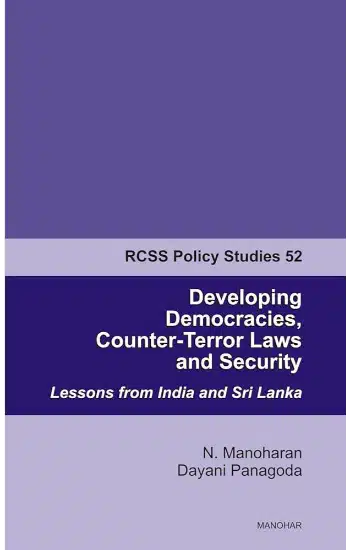Developing Democracies, Counter-Terror Laws and Security: Lessons from India and Sri Lanka (RCSS Policy Studies 52)
Publisher:
| Author:
| Language:
| Format:
Publisher:
Author:
Language:
Format:
₹295 ₹250
Save: 15%
In stock
Ships within:
In stock
| Book Type |
|---|
ISBN:
Page Extent:
Published in association with the Regional Centre for Strategic Studies in Sri Lanka, this book raises genuine security concerns that the Indian state attempts to address through various measures. The use of counter-terrorism legislation is one such means, employed especially by democracies. This study contends that legislation ought to adequately deter terrorist groups, but at the same time, prevent the state from encroaching on human rights of the innocents. The key questions addressed in the book are: Do counter-terrorism laws enhance security? If so, in what manner? If not, why and what are the problems involved? The study assumes that there is an inherent tension between state security and the security of its subjects, and it intends to fill the gap in the existing literature on legal aspects of terrorism and counter-terrorism.
Published in association with the Regional Centre for Strategic Studies in Sri Lanka, this book raises genuine security concerns that the Indian state attempts to address through various measures. The use of counter-terrorism legislation is one such means, employed especially by democracies. This study contends that legislation ought to adequately deter terrorist groups, but at the same time, prevent the state from encroaching on human rights of the innocents. The key questions addressed in the book are: Do counter-terrorism laws enhance security? If so, in what manner? If not, why and what are the problems involved? The study assumes that there is an inherent tension between state security and the security of its subjects, and it intends to fill the gap in the existing literature on legal aspects of terrorism and counter-terrorism.
About Author
Reviews
There are no reviews yet.
Related products
VEDIC BELIEFS AND PRACTICES THROUGH ARTHAVADA (Set of 2 Vols.)
Save: 15%
Harappan Studies: Recent Researches In South Asian Archaeology (Vol. I)
Save: 15%




Reviews
There are no reviews yet.